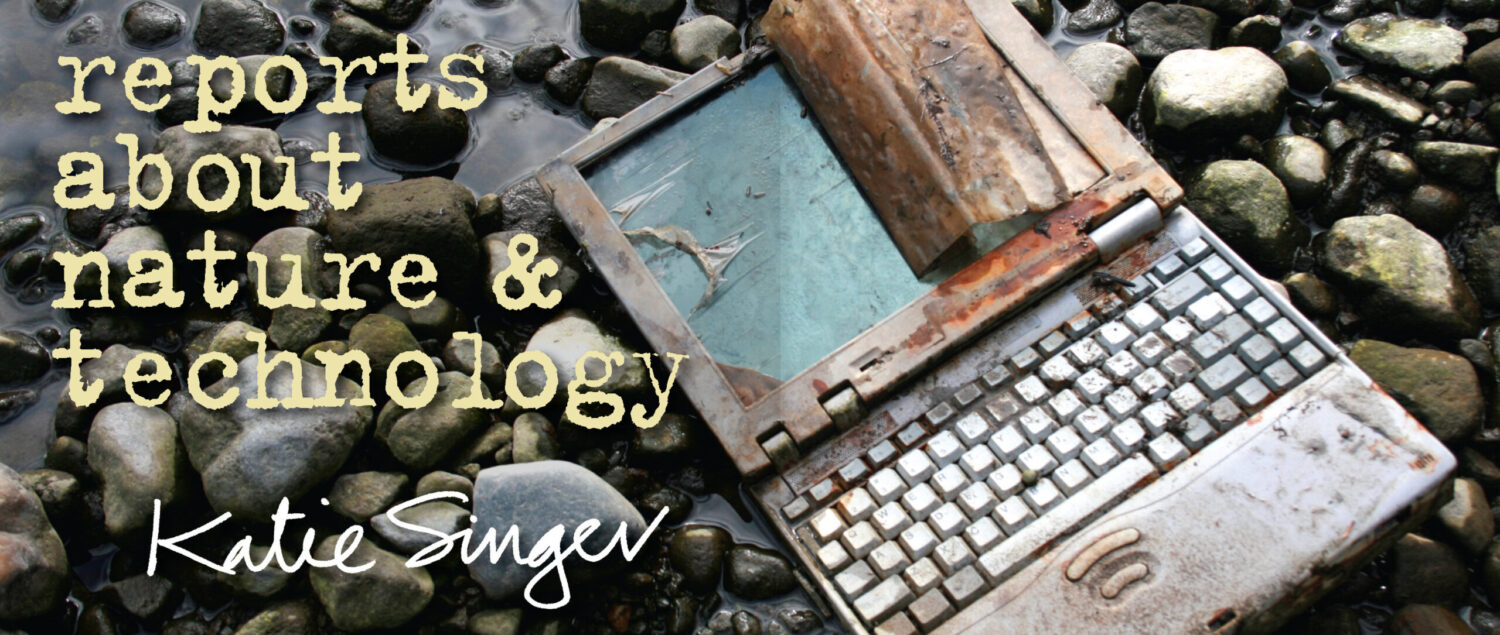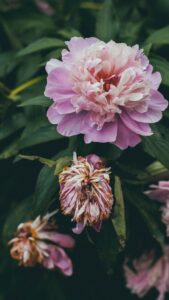Allegiance to nature while living in a techno-sphere:
A health care directive
After a friend died a few months ago without a will—and I learned that two thirds of U.S. Americans die without one1—I updated mine and my health care directive for the first time in twenty years.
What’s changed in twenty years? Well. Computers’ presence in every aspect of our lives has increased. Many of us recognize that we live beyond our economic means. We also live beyond our ecological means: we take from the Earth faster than it can replenish; we waste faster than the Earth can absorb our waste. And yet, we still dream that our electrified, computerized society can continue—without consequences to ecosystems and public health.
Keeping sheltered, fed and solvent now requires more money, computer savvy, patience with robots (conflict resolution skills with robots?) than many of us have. Survival requires skills in growing vegetables, self-help health care and conflict resolution…that many of us never learned.
Still, to the best of my ability, I aim to live in concert with nature, and to live and die within my ecological and financial means.
Birth in New York City
Was I born to a bio-region or a techno-region?
My mother gave birth to me in 1960, in a fluorescent-lit New York City hospital with an epidural that kept her unconscious for my arrival. While she recovered, nurses gave me a rubber-tipped bottle filled with soymilk I could not digest.
For a U.S. American born in the first generation after World War II, my birth was nothing special. For any mammal, separating the mother and baby during the infant’s first hours practically guarantees that the mother will reject her offspring.
My mother and I adored each other. But before I turned twenty, we had a rift that we could not repair. From the time of our schism, I dedicated myself to healing our relationship. More widely, this has meant studying nature’s cycles and my relationship to nature.
My health care directive comes out of this dedication.
My health care directive
I consider death an ordinary, natural part of every life.
In the event that I become unconscious or otherwise extremely ill and unable to make decisions for myself, I want to be among people who honor my body’s processes, including death. I do not want my life or dying manipulated by technology. I do not want any attempts made to extend my life by machinery or pharmaceuticals.
Do not call 911. Do not resuscitate me.
Do not give me a blood transfusion. Do not put me on a ventilator. Do not collect data about my vital signs. Do not give me pharmaceuticals, including aspirin, antibiotics, blood thinners, sedatives or anti-depressants. Do not give me pain medication that renders me unconscious.
Do not give me artificial nutrition or hydration. I do not eat mass-produced, genetically modified, microwaved or processed food. No milkshake for me. (I was born celiac and am still allergic to wheat, spelt, soy and dairy. I do not eat bread, crackers, chips, flour of any kind, sugar, honey, caffeine, cheese or food grown with pesticides, herbicides, growth hormones or washed in antibiotics. I do not eat farm-raised fish or factory-farmed eggs, poultry or meat.)
I do not want a television in my vicinity. I do not want mobile phones, laptops, tablets, iWatches or desktop computers or Wi-Fi in my vicinity. I do not want to be exposed to fluorescent lights.
I do not want to be in an environment indoctrinated by an organized religion.
If I experience physical pain while dying, acupuncture, essential oils, homeopathy and investigating my thinking with the questions of Byron Katie5 have helped me in the past. Give me paper and pastels. I do not want a morphine drip. I want to die consciously.
If I become unconscious, please respect that I absolutely prefer death to being unconscious in a hospital or a nursing home. I do not want my living or dying to support the medical industry and/or medical technologies. I do not want to receive treatment that I cannot afford. First and foremost, my health insurance is with nature.
May my caregivers recognize that these directives are essential to my health, which is based on respect for nature. I prefer NO treatment to a provider who does not understand this.
I will not hold anyone liable if/when they present a medical option that I do not follow, even if my health deteriorates as a result.
I consider my birth a blessing. When it comes, may my death mark the completion of a living cycle that aimed to discover its place in nature.
Thank you for honoring my wishes.
My burial
I’d like my body buried within my ecological and economic means.
Cremation is affordable but energy intensive, greenhouse gas emitting and toxic.
Human composting2 sounds good—but transporting my corpse to the nearest composter makes it ecologically and financially unsound.
A coffin made from wood chips and mushrooms can turn a corpse into compost in less than three years.3 (Normally, a corpse takes twelve years to decompose.) Ideally, someone near me would build this casket. Shipping one from Europe—where they are currently made—would use more energy and cost more to ship than I can afford.
I’m open to a biodegradable tree pod burial.4 Beside purchasing the coffin or the pod, my survivors would need land.
If a plot is not affordable, I opt for burial in the pauper’s grave.
In other words, finding an ecological and economical burial plan means I’ve still got work to do.
References
- https://www.caring.com/caregivers/estate-planning/wills-survey/
- https://harpers.org/archive/2021/10/to-be-a-field-of-poppies-natural-organic-reduction-composting-corpse/
- https://www.boredpanda.com/mushroom-fungus-coffin-body-compost-loop/?utm_source=google&utm_medium=organic&utm_campaign=organic
- https://www.buzzworthy.com/coffins-eco-friendly-burial-pods/
- https://thework.com
Katie Singer writes about the energy, extractions, toxic waste and greenhouse gases involved in manufacturing computers, telecom infrastructure, electric vehicles and other electronic technologies. She believes that if she’s not aware that she’s part of the problem, then she can’t be part of the solution. She dreams that every smartphone user learns about the supply chain of one substance (of 1000+) in a smartphone. Her most recent book is An Electronic Silent Spring. She currently writes about nature, democracy and technology for Meer.com. Visit www.OurWeb.tech and www.ElectronicSilentSpring.com.
This article was originally published by Meer Magazine here: https://www.meer.com/en/69657-living-and-dying-with-allegiance-to-nature

